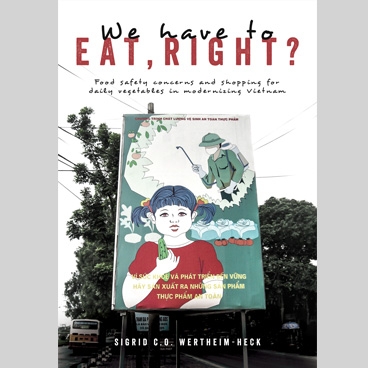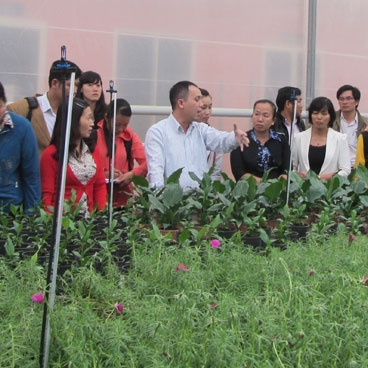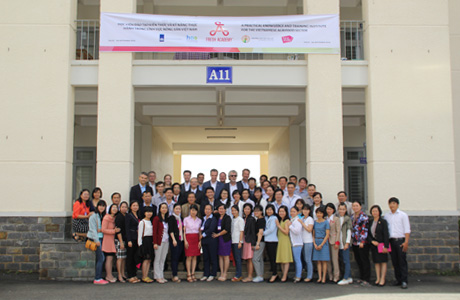| PhD candidate | SCO (Sigrid) Wertheim-Heck |
| Promoter | Prof.dr.ir. G (Gert) Spaargaren |
| Co-promoter | Dr.ir. SR (Sietze) Vellema |
| Organisation | Wageningen UR, Environmental Policy, Wageningen School of Social Sciences (WASS) |
| Date | Friday 20 November 2015 |
| Time | 13:30 to 15:00 |
| Venue | Auditorium, building number 362 Generaal Foulkesweg 1 362 6703 BG Wageningen 0317 – 483592 |
Download the open access paper
Would you like to follow the broadcast of my PhD defense live?
Click the button below and click on the ‘Live broadcast of PhD defence’ on the right side.
Food safety concerns do not drive Vietnamese consumers towards supermarkets yet
Vietnam is one of the world’s largest growth economies. To meet the growing demand for fresh vegetables at declining farmland acreage cultivation methods have intensified with an increase in the often inappropriate application of agricultural inputs. Food safety scandals are widely covered by the public media and 95% of the consumers is heavily perturbed by the safety of the vegetables they consume on a daily basis.
To improve food safety and to restore trust among consumers, authorities in Vietnam stimulate the development of western style supermarkets while reducing traditional (street-) market vending. The government expects supermarkets, which maintain strict food safety management systems and food hygiene standards, to provide a suitable alternative for the less controlled and unhygienic street- and market vending. Policies are designed to influence behavior based on the idea that food safety concerns drive consumers away from traditional markets towards supermarkets. However, only 2% off the vegetables is being purchased in supermarkets. The research reveals how supermarkets do not necessarily fit in the routine organization of the every day lives of different groups of consumers. Some consumers, living in local communities with strong social cohesion, take their time and purchase their vegetables while ‘walking and talking’ in their ‘own’ market. Other, more time constrained consumers, prefer ‘shopping without stopping’, purchasing their vegetables seated on their motorbike while keeping the engine running.
The research shows in what way the different daily shopping practices prevalent in Vietnam are embedded within the wider range of every day life activities and social interdependencies, and how these have evolved over time. Vietnamese consumers appear creative and skilled in coping with food safety risks. They importantly rely on their own practical know-how in discerning safe vegetables, while attaching less importance to anonymous and objective assurance systems and certificates known from supermarkets and controlled chains. This study shows that western models are not readily applicable within the Asian context and thus warns against making the much needed food safety policies dependent on a single, ideal-typical (supermarket) model.




